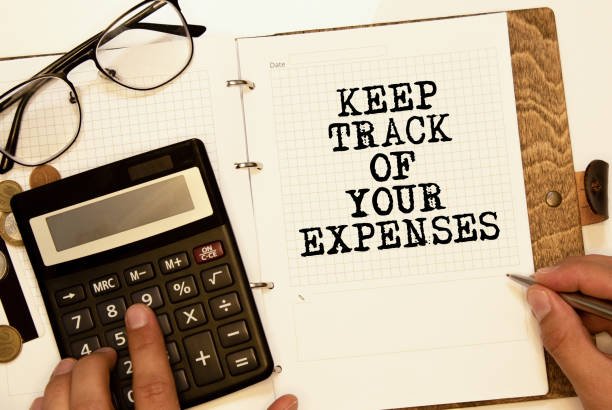Tax Deduction on Rental Property

Understanding Tax Deductions on Rental Property
Owning a rental property comes with financial responsibilities, including taxes. However, the IRS provides several tax deductions that can reduce your taxable income. These deductions help property owners offset expenses, making rental property investments more profitable. Understanding these tax benefits is essential for maximizing returns and maintaining compliance with tax laws.
When searching for a rental property near me, it’s crucial to consider the tax implications. Deductions such as mortgage interest, maintenance costs, and property management fees can significantly lower the overall tax burden. Landlords should document all expenses to ensure they claim every allowable deduction and maximize their financial benefits.
Mortgage Interest Deduction
One of the most significant deductions available for rental property owners is the mortgage interest deduction. If you finance a rental property through a mortgage, you can deduct the interest portion of your monthly payments. This can lead to substantial tax savings, particularly in the early years of the loan when interest payments are higher.
For landlords looking for a rental property near me, considering mortgage interest deductions can help in making informed investment decisions. Keeping detailed mortgage statements and ensuring that the property is used exclusively for rental purposes will help in claiming this deduction correctly.
Depreciation Deduction
Depreciation allows landlords to recover the cost of the rental property over time. The IRS permits property owners to depreciate the value of the building (not the land) over 27.5 years. This deduction helps offset income taxes by accounting for the wear and tear of the property.
To maximize the depreciation benefits on a rental property near me, landlords must determine the correct depreciable value, excluding land costs. Proper documentation and professional advice can ensure accurate depreciation calculations and compliance with IRS regulations.
Property Tax and Insurance Deductions
Property taxes paid on a rental property are fully deductible. These taxes vary by location, so it’s important to research tax rates when looking for a rental property near me. Keeping records of property tax payments is essential to ensure accurate deductions.
Similarly, insurance premiums for landlord policies, including liability, fire, and flood insurance, are also deductible. This helps in reducing the overall cost of maintaining a rental property. Ensuring the right coverage protects both the investment and the rental income stream.
Repairs and Maintenance Deductions
Regular maintenance and repairs are necessary to keep a rental property in good condition. The IRS allows landlords to deduct expenses for repairs, such as fixing leaks, painting, and replacing broken appliances. These deductions apply only to expenses that restore the property to its original condition rather than improvements that increase its value.
When owning a rental property near me, keeping track of maintenance receipts and repair invoices is crucial. Proper documentation ensures that landlords can claim deductions correctly and reduce their taxable income.
Travel Expenses and Utilities Deduction
If a landlord needs to travel for property management, those expenses can be deducted. This includes mileage, airfare, lodging, and meals related to rental property visits. However, the travel must be necessary and directly related to managing or maintaining the property.
Additionally, if landlords pay for utilities such as water, electricity, or gas on behalf of tenants, those costs can be deducted. Ensuring that these expenses are separated from personal costs will help in claiming appropriate deductions.
Home Office Deduction
Landlords who manage their rental property from a dedicated home office can deduct a portion of their home expenses. The IRS allows deductions for a home office if it is used exclusively for managing rental property activities. This can include a percentage of rent or mortgage, utilities, and internet expenses.
For landlords searching for a rental property near me, considering a home office setup can provide additional tax benefits. Maintaining proper records and ensuring compliance with IRS requirements will help in securing this deduction.
Professional Fees and Legal Expenses Deduction
Hiring professionals such as accountants, property managers, or attorneys to assist with rental property matters is a common practice. The fees paid for these services are tax-deductible. This includes the cost of preparing tax returns, legal consultations, and property management fees.
For those investing in a rental property near me, understanding these deductions can lead to significant savings. Keeping records of all professional service payments ensures that landlords claim every possible deduction.
Common Tax Deduction Mistakes to Avoid
Many landlords miss out on deductions or make errors that can lead to IRS audits. Here are common mistakes to avoid:
- Failing to keep proper records of expenses and receipts.
- Misclassifying repairs as improvements, which are not immediately deductible.
- Overestimating home office deductions, leading to IRS scrutiny.
- Forgetting to deduct travel expenses related to rental property management.
By staying organized and consulting tax professionals, landlords can avoid these pitfalls and maximize deductions.
Final Thoughts
Tax deductions on a rental property can significantly reduce taxable income, making rental investments more profitable. Understanding and utilizing deductions such as mortgage interest, depreciation, repairs, and professional fees ensures that landlords maximize their financial benefits. Keeping accurate records and consulting professionals can help in navigating tax laws effectively. For those searching for a rental property near me, considering tax deductions can play a crucial role in investment decisions and long-term profitability.






